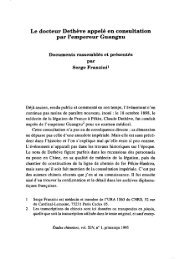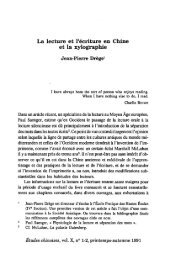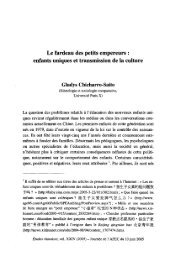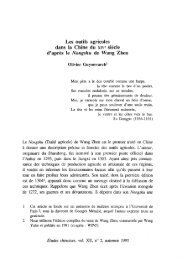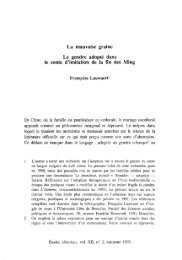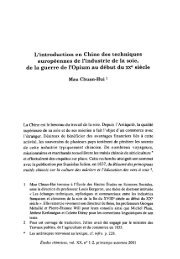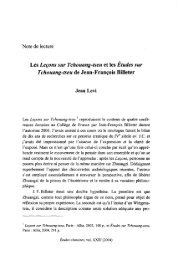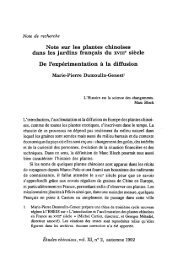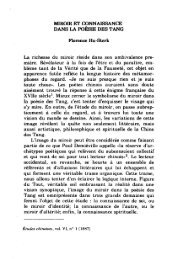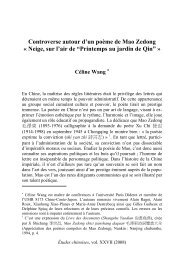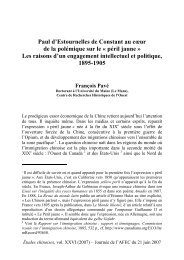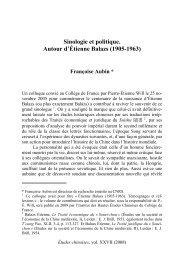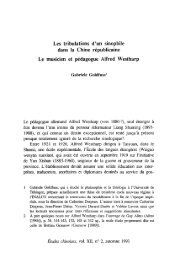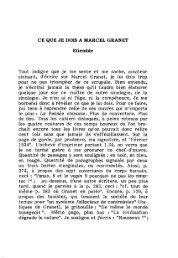You also want an ePaper? Increase the reach of your titles
YUMPU automatically turns print PDFs into web optimized ePapers that Google loves.
Comptes rendus<br />
ance, but the main focus of his study is the philosophy of Wang Fuzhi.<br />
And, as he déclares at the outset, it is necessary to replace Wang in the<br />
context not only of the Chinese philosophical tradition but also of his life<br />
and times in order to understand what he wrote.<br />
In an introductory chapter, the author explains that Wang lived at a<br />
time of national disaster, which saw the fall of the Ming dynasty and the<br />
subséquent Manchu invasion of his native land, after décades of social and<br />
political turmoil and popular uprisings. (It was also a period of intellectual<br />
ferment that has been compared to the European Enlightenment.) It was<br />
against this background that Wang, fierce patriot, Ming loyalist and<br />
committed Confucian, withdrew into a life of secluded study after a brief<br />
and almost fatal participation in the anti-Manchu résistance of one of the<br />
surviving impérial Ming princes. In hiding in the hills of his native Hunan,<br />
in constant danger due to his refusai to accept the new régime and his<br />
vituperative anti-Manchu writings (too extrême to publish in his lifetime,<br />
they were aimed primarily at posterity), he was spurred on in ail his<br />
endeavours by an obsessive désire to understand how such a tragedy could<br />
hâve overtaken Chinese civilization. He devoted himself to the study of<br />
history, evolved his own philosophical System, continued dreaming of a<br />
Chinese restoration, and wrote, and wrote and wrote.<br />
Although, as Gernet warns the reader, one should not take Wang<br />
Fuzhi for the représentative of some timeless Chinese philosophy<br />
(especially given the emphasis he placed on the particular factors of time<br />
and place, times and circumstances), one may nonetheless see in him the<br />
ultimate exponent of a certain philosophical tradition that, as Gernet<br />
demonstrates, can be traced back through Zhang Zai to the kind of very<br />
early Chinese thought expressed in the Zhouyi.<br />
Gernet's dense 400 pages carefully expound, analyze and discuss<br />
Wang's thought and its place in the Chinese philosophical tradition, while<br />
emphasizing that in order to understand either one must be prepared to<br />
accept that one is confronted with an entirely différent - but equally valid<br />
- conception of the world from the normal western one. As Gernet puts it,<br />
"on est dans un autre univers mental que celui auquel nos modes de pensée<br />
nous ont habitués". Rather than attempt to résume the whole of his account<br />
479



